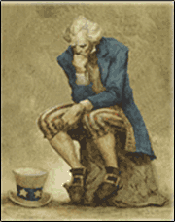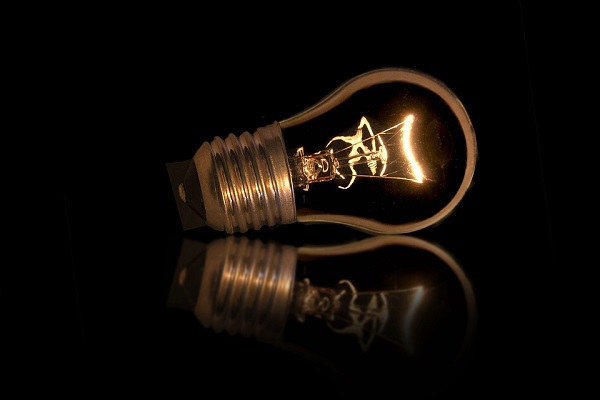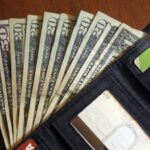
–>
September 1, 2022
Last September, scores of patent-holders demonstrated in six cities across the U.S. wearing black t-shirts that said, “Homo sapiens inventoris: Endangered Species.” These men and women of ingenuity were protesting America‘s decade of stolen dreams: the years since the passage of the America Invents Act (AIA) of 2011 and the establishment of the Patent Trial and Appeal Board (PTAB), which together have made it easy for big corporations to steal their ideas and profit from them with impunity.
‘); googletag.cmd.push(function () { googletag.display(‘div-gpt-ad-1609268089992-0’); }); }
“We‘ve had piracy for all the years I‘ve been an inventor, but the AIA just put it on steroids, in the context that now you can get PTAB-ed and lose your rights without any due process at all,” said Dan Brown at the Detroit rally. A professor with more than 40 patents, including inventions used in space shuttles, Brown invented the bionic wrench, a one-size-fits-all wrench that obviates the problem of stripped bolt corners. He says Sears stole his idea, down to the marketing pitch, and replaced his product on its shelves with a Chinese rip-off.
Participants at these rallies, organized by U.S. Inventor, a non-profit fighting for inventors’ rights, had similar stories. So do others represented by U.S. Inventor. Among them are Molly Metz, a jump rope champion whose patented idea for a ball-and-eye pivot mechanism for speed ropes was stolen by a rogue competitor; Glenn Sanders, whose patent on Emmy award–winning wireless video recording equipment was invalidated by PTAB; and Gene Luoma, an octogenarian muscular dystrophy patient who lost his patent and millions in royalties on his Zip-It drain cleaner.
These are individuals who came up with brilliant ideas or solutions, worked on them, built prototypes, set up small businesses, and plowed ahead to sell their products. But the new patent system under AIA is throttling them. For them, it is destroying the culture of inventiveness, innovation, and creating original products and solutions that made America great and rocketed it into space.
‘); googletag.cmd.push(function () { googletag.display(‘div-gpt-ad-1609270365559-0’); }); }
To understand how that came about, a brief history of American patent law is in order.
As early as during the Constitutional Convention of 1787, our founding fathers recognized the need to promote innovation and finely balance it against the competitive spirit of the free market. So, under Article I, Section 8, Clause 8, they granted Congress the power to give authors and inventors exclusive rights for a limited time over their writing and discoveries. They viewed intellectual property as real property and wisely foresaw its protection and nurturing as the road to American prosperity and greatness through creativity.
The third law of Congress was the Patent Act of 1790. The Bill of Rights of 1791 further affirmed, through the Fifth Amendment, that property rights (which also meant intellectual property, such as patents) were not to be taken away without due process of law or without just compensation.
Then the Patent Act of 1836 gave the first inventor the right to a patent, not the first to file for one. It also established that the U.S. Patent and Trade Office (USPTO) would issue patents, decide on infringements, and revoke or invalidate patents after holding hearings, and examining expert testimony and material and other evidence. Though this could entail lengthy and expensive legal proceedings, the system empowered inventors and small businesses with the means to protect their intellectual property.
Two ancillary but relevant facts. In 1946, the law was amended to change the first-to-invent principle from first to invent in the world to first to invent in America in response to a 1939 SCOTUS judgment (Electric Storage Battery v. Shimadzu) that could have allowed American patents to be invalidated by claims from abroad. In 1982, the Federal Circuit Court of Appeals was created, with exclusive jurisdiction on appeals over decisions by patent appeal boards or district courts, after inconsistencies that raised forum shopping concerns. The same year, limits were set on the breadth of a patent so that it would not restrict related inventions.
American innovation thrived from the late 18th century onward, with wars and hard times galvanizing invention and myriad spin-offs that have benefited humankind in unforeseen ways. Incentivizing invention made America a superpower — took it into space and into the molecular-level research that is unfolding the secrets of life itself. Not for nothing have Yankee ingenuity and can-do spirit become American shibboleths.
‘); googletag.cmd.push(function () { googletag.display(‘div-gpt-ad-1609268078422-0’); }); } if (publir_show_ads) { document.write(“
But things began to fall apart beginning in 2007. A sustained and exaggerated campaign by the Coalition for Patent Fairness, an ad hoc organization of Big Tech corporations like Amazon, Google, Intel, and others, sought to alter eligibility doctrine and get rid of the system of injunctions and sanctions for patent violations. At the same time, Big Tech had been building up the myth of the Patent Troll, against whom “true innovators” — that is, Big Tech and Big Business, which have actually been stealing ideas and used financial muscle to browbeat the solo inventor with litigation — must be protected.
Unfortunately for America, their narrative has prevailed. In 2011, President Barack Obama presented the AIA, ostensibly to end frivolous lawsuits, and make the patent process easier, less expensive, faster, and fairer than handling patent suits in courts or before the USPTO. America also switched to the first-to-file principle, followed worldwide. The final nail in the coffin was the establishment of PTAB, an administrative body without a lifetime-appointed judge. PTAB hearings are conducted with little due process — there are instances in which it has refused to admit material evidence — and so far, 84% of its decisions invalidated inventors’ patents. As retired federal judge Paul Michel says, “[t]hey [Big Tech] got their way with Congress in 2011 with a statute creating an administrative tribunal where it would be easier to kill patents when they could not do so in the courts.”
Jeff Parker, a longtime inventor and CEO of ParkerVision, laments the squelching of the incentive to invent and the end of the cooperative spirit. In the 1970s, he developed some of the first digital thermostats for air-conditioners and patented several of their features. Impressed by the achievements of a small company with a limited R&D budget, Carrier approached him to embark on a joint venture. Such interactions, he says, were the foundation of the U.S. economy then. The symbiosis between spirited inventors and deep-pocket corporations improved products, solved problems, and benefited consumers.
Later, when a much larger competitor copied their product, down to the text in the instruction manual, all it took was a letter for the copycat to acknowledge wrongdoing and pull down the product for fear of litigation. But that‘s a vestige of the past, says Parker: today, his company would end up before a hostile board. Big corporations don‘t have to invent anything. They can wait for inventions, scoop them up, and then either get to the patent office first or get the inventor‘s patent invalidated. Patent litigation has already reduced the market cap of Parker‘s company from $500 million to $30 million, and the technology he developed can now be used for free.
It’s indeed the death of the American Dream, built on innovation. Meanwhile, in 2019, China wrested the U.S.‘s long-held position of the country which filed the most international patents. China continued to rank first in 2020 and 2021. And while America left the solo inventor defenseless, China has strengthened its patent laws and innovation policy so much that Erick Robinson, a patent attorney with Beijing East IP, says, “China may be the best place in the world to file a patent lawsuit.”
Hopefully, H.R. 5874, or the Restoring America‘s Leadership in Innovation Act (RALIA), introduced by Rep. Thomas Massie (R-Ky.), will eliminate the PTAB and provisions of the AIA that encourage patent robbery by Big Business. That will bring relief to hundreds of ingenious inventors like Brown, Sanders, Parker, and the octogenarian Luoma, whose intellectual property must be protected like physical property. Just as our founding fathers envisioned it. Remember, two of them — Benjamin Franklin and Thomas Jefferson — were prolific inventors.

Image: WolfBlur via Pixabay, Pixabay License.
<!– if(page_width_onload <= 479) { document.write("
“); googletag.cmd.push(function() { googletag.display(‘div-gpt-ad-1345489840937-4’); }); } –> If you experience technical problems, please write to [email protected]
FOLLOW US ON
<!–
–>
<!– _qoptions={ qacct:”p-9bKF-NgTuSFM6″ }; ![]() –> <!—-> <!– var addthis_share = { email_template: “new_template” } –>
–> <!—-> <!– var addthis_share = { email_template: “new_template” } –>







